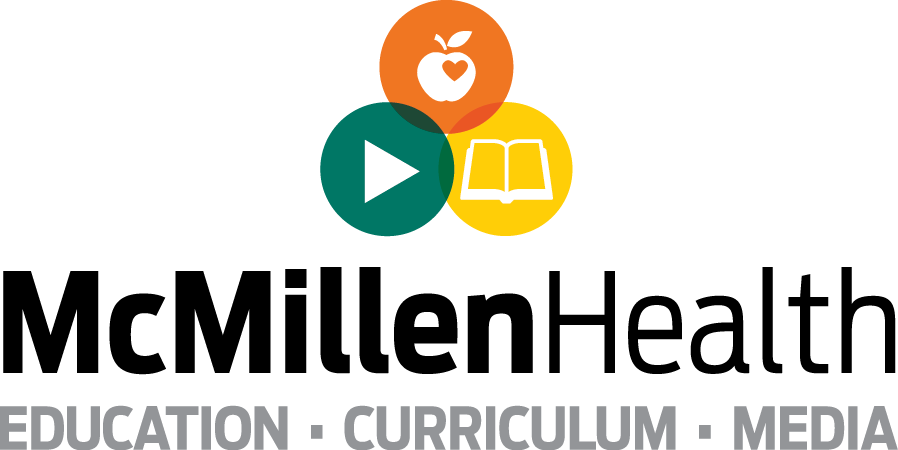What is a Health Educator? Meaning, Job, and More
A health educator is a teacher or health professional who teaches about health and wellness. In this blog post, you will learn about the health educator profession and information about health educator skills and teaching strategies.
We didn't want to miss the chance to share the exciting things happening at McMillen Health. This post will also highlight McMillen Health’s own health educators and learning opportunities.
What Does It Mean to Be a Health Educator?
Health educators are the experts in teaching about health. Their classes and lessons are based on current health research and health trends. Using engaging learning activities, health educators present vital health information to students of all ages and abilities.
Health educators adapt their health classes to be relatable, age-appropriate, and culturally relevant for their students. For health educators, the goal is to prepare students to make healthy habits they can use long after class ends.
The best health educators do more than just share knowledge. They also share quality resources with students, including materials, community resources, and helplines.
In addition to teaching, health educators may also research and design health programs.
What Do Health Educators Teach?
There are many health topics that health educators teach!
Health education topics include:
general health
hygiene
nutrition and physical fitness
drug, alcohol, and tobacco prevention
oral health
teen pregnancy
sex education
social and emotional health
disease prevention
early detection
human growth and development
Do you want to learn more about McMillen’s health education programming? Check out our program guide.
Where Do Health Educators Work?
Health educators can work in many different settings. Here are places a health educator might teach:
health education centers
school classrooms (both live and virtual)
nonprofit organizations
recovery houses and substance use treatment centers
conferences
community meetings
healthcare clinics or hospitals
WIC offices
private businesses
Why is Health Education Important?
Health education empowers students to make healthy choices. Students can use information from health education classes to live longer, healthier lives.
Health educators are empathetic and nonjudgmental while teaching. When students feel comfortable, they can ask the important health questions they need answers to. Often, health educators are teaching vulnerable populations. Access to wellness and disease prevention information can truly be lifesaving for students.
Health educators will also teach students the skills to advocate for their health and their family's and community's health. This creates a legacy of healthier lives.
Community services or other non-profit organizations may find a need for a specific type of health education. These organizations can partner with health educators to develop and deliver specialized health education to the people they serve.
Who Do Health Educators Teach?
Students learn in one of McMillen Health’s themed teaching theaters.
Health educators teach students of all ages and backgrounds. Health educators may work with diverse groups or focus on an audience with a particular health need. Thanks to virtual classrooms, health educators can teach lessons to students anywhere around the world.
For example, here at McMillen Health, we have health education programs for every age and grade level. We have also tailored our education programs to audiences including preschoolers, teens, pregnant people, parents, adults with disabilities, people in recovery, social service professionals, and more.
As the field of health education grows, health educators will be able to reach a broader, more diverse audience to share health information.
Identifying Health Education Gaps
Health educators stay up to date on health topics and work closely with their communities. This means they are often the first to notice trends or gaps in the current health education needs. Once health educators identify a gap, they can advocate for or develop programs to fill that need.
How Do Health Educators Teach?
How health educators teach is almost as important as what they teach. Students of all ages learn best when a lesson is interactive.
Good health educators are experts at engaging students in health lessons. They use props, activities, hands-on experiences, discussions, and technology to make learning interesting. This teaching strategy works better than passive lectures or reading assignments.
Interactive learning gives students a chance to:
problem-solve
develop their own thoughts and ideas
get feedback from the teacher
Health educators use videos, PowerPoints, interactive worksheets, games, flipcharts, and even phone apps to teach students about health.
Health Education Activities
experiments
group discussions
trivia games
goal setting
polls
meal planning
role-play
Health Education Teaching Props
The following are examples of teaching props health educators may use:
impairment goggles
plastinated organs
mouth models
tooth models
empathy bellies
puppets
costumes
human skeleton models
lifelike brain models
giant fake cigarettes or cannabis plants
Students visiting McMillen Health explore a display in the Great Hall.
Health Education Exhibits and Displays
At McMillen Health, we have displays and a full exhibit hall for students to explore during visits.
Our center offers the following unique exhibits:
TAM (Transparent Anatomical Manikin)
Full human skeleton
Interactive drug and tobacco display
Stationary bike
Interactive heartbeat and heart rate stations
MyPlate family meal tables
Large ear, mouth, and tooth displays
MyPlate giant magnetic wall
Larger-than-life cross sections of the human body
Puppet shows
Not all health educators have access to the same props and displays as McMillen Health. Still, health educators everywhere are dedicated to making the health curriculum exciting and memorable. The goal is to create a lasting impression on students.
Requirements to Work as a Health Educator
Each health education organization will have its own job requirements. The basic requirement for most health education jobs is a bachelor's degree in education or a health-related field.
This can include a degree in elementary or secondary education, early childhood education, nursing, dental hygiene, public health, or nutrition.
At McMillen Health, our health educators have earned bachelor's degrees in education, health, or related field. Before coming to McMillen, each health educator had at least two years of teaching experience.
What are the Responsibilities of a Health Educator?
The responsibilities of health educators depend on their work setting.
Essential responsibilities for health educators include:
Teach students about healthy lifestyle
Engage students in classes and activities
Use innovative teaching strategies
Create a safe and supportive learning environment
Respectfully listen and respond to students
Promote wellness and disease prevention
Help students choose health goals and strategies
Advocate for policies that support health and wellness
Provide relevant materials and referrals
Stay up to date on health topics
Qualities and Skills of a Health Educator
Every health educator needs to have a genuine interest in health education.
Successful health educators also have the following skills and qualities:
Teaching and instructional skills
Excellent communication and people skills
Strong computer skills
Problem-solving skills
Research skills
Ability to analyze, summarize, and share research and data
Ability to teach people from diverse backgrounds
Patience, flexibility, and adaptability
More about Health Educator Careers
What is the Workplace Like?
Depending on the workplace, health educators may be teaching virtually on-site at a location. Health educators may also travel from location to location to teach classes.
Work hours for health educators can also vary. Some will work on weekdays teaching students in schools. Other health educators might also have classes scheduled in the evenings or on weekends.
Health educators may work one-on-one with clients or teach groups of students. Sometimes health educators will have a co-teacher, and sometimes they will lead classes alone.
All health educators will spend time researching, prepping for classes, and planning lessons. Some educators may spend more time teaching, while others will focus their time on researching and creating lessons.
At McMillen Health, our educators lead classes in the center's teaching theaters or auditorium, in virtual or in-person classrooms, and on-site at schools and organizations.
Health Educator Certification
Generally, a health educator will have at least a bachelor's degree.
A person can also become a certified health education specialist (CHES). Educators can do this through the National Commission on Health Education Credentialing. A health educator must have a minimum of a bachelors degree, complete continuing education credits, and pass an exam to become certified through NCHEC.
Some health education positions may also require advanced health education degrees. Universities have masters and doctorate degrees in health education and promotion programs.
What is the Job Outlook for Health Educators?
According to the Bureau of Labor Statistics, jobs for health educators are expected to grow. This is excellent news if you're interested in turning your passion for health and wellness into a career.
We hope this article has given you a better understanding of what health educators are and what they do. If you have more questions about health education, please reach out to us at McMillen Health. You can contact us or comment below. We would love to hear from you.
And if your goal is to turn your passion for health education into a career, check out our employment opportunities. We are looking for passionate educators to join our team and help us change lives.




